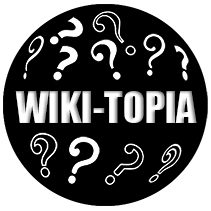Contents
- 1 Understanding the Purpose of a CV
- 2 Identifying Key Skills and Experiences
- 3 Choosing a Suitable CV Format
- 4 Crafting a Clear and Concise Summary
- 5 Highlighting Relevant Work Experience
- 6 Showcasing Education and Qualifications
- 7 Emphasizing Transferable Skills
- 8 Including Accomplishments and Achievements
- 9 Incorporating Additional Relevant Information
- 10 Ensuring Consistency and Professionalism
Understanding the Purpose of a CV
The purpose of a CV, or Curriculum Vitae, is to provide a comprehensive overview of a person’s professional background, skills, and qualifications. It serves as a marketing tool that showcases one’s abilities and experiences to potential employers or recruiters. A well-crafted CV can help individuals stand out from the competition and secure opportunities for employment or further career advancement.
In today’s competitive job market, employers typically receive numerous applications for each job opening. As a result, they often have limited time to review each candidate’s qualifications in depth. A CV allows individuals to efficiently present their most relevant skills, experiences, and accomplishments in a concise and organized manner. By highlighting the key aspects that match the requirements of the position they are applying for, applicants can increase their chances of catching the attention of employers and obtaining an interview opportunity. The purpose of a CV, therefore, is not just to provide a chronological summary of one’s professional history, but also to effectively communicate one’s potential value to prospective employers.
Identifying Key Skills and Experiences
When it comes to creating an effective CV, one of the most crucial elements is identifying your key skills and experiences. This step involves carefully evaluating your professional background and determining the specific abilities and knowledge you possess that are most relevant to your desired job or industry. By identifying these key skills and experiences, you can highlight them prominently in your CV, showcasing to potential employers that you possess the necessary qualifications for the role.
To begin the process of identifying your key skills and experiences, it is essential to thoroughly review your past job positions and responsibilities. Consider the tasks and duties you were responsible for and evaluate the skills and knowledge you gained from those experiences. Additionally, think about any specific achievements or accomplishments that you can highlight, as they can demonstrate your effectiveness and potential in a particular area. It is important to focus on both hard skills, such as technical expertise or proficiency in specific software, and soft skills, including communication, problem-solving, and leadership abilities. By strategically identifying and emphasizing these relevant skills and experiences, you can make your CV stand out and increase your chances of being considered for the job you desire.
Choosing a Suitable CV Format
The choice of a suitable CV format is an important aspect of creating an effective resume. It dictates the overall structure and presentation of your professional information, allowing potential employers to quickly and easily understand your qualifications. There are several commonly used CV formats, each with its own advantages and considerations.
The chronological format is the most traditional and widely used CV format. It highlights your work experience in reverse chronological order, starting with your most recent position. This format is best suited for individuals with a solid work history, as it emphasizes career progression and demonstrates a clear trajectory of growth. It allows employers to see your most recent roles and responsibilities, making it easier for them to assess your suitability for a particular job. However, it may not be ideal for those with limited work experience or those looking to make a career change.
Crafting a Clear and Concise Summary
In order to grab the attention of potential employers and recruiters, it is crucial to craft a clear and concise summary for your CV. This section provides a brief overview of your skills, experiences, and career goals, giving employers a snapshot of what you can bring to their organization. When writing your summary, it is important to keep it concise and to the point. Avoid long, rambling paragraphs and instead focus on summarizing your most relevant and impressive qualifications. Use powerful and impactful language to highlight your key strengths and achievements, and make sure to align your summary with the specific job or industry you are targeting.
A clear and concise summary should also be tailored to the needs and expectations of the employers you are targeting. Research the company or organization you are applying to and understand their values, goals, and mission. This will allow you to emphasize the skills and experiences that are most relevant to their needs. Additionally, consider the specific job requirements and job description, and align your summary with the skills and qualifications they are seeking. By customizing your summary to fit the needs of each employer, you increase your chances of making a strong first impression and standing out from the competition.
Highlighting Relevant Work Experience
When it comes to crafting a strong CV, one of the key sections to focus on is highlighting relevant work experience. This section provides potential employers with a clear picture of your professional background and accomplishments. It is important to include details such as job titles, company names, and dates of employment, as well as a brief description of your responsibilities and achievements in each role. By showcasing your relevant work experience, you demonstrate your expertise and suitability for the position you are applying for.
When highlighting your work experience, it is crucial to prioritize the most relevant roles and accomplishments. Start by listing your most recent and prominent positions. Provide a concise overview of the responsibilities you held in each role, emphasizing any transferable skills that are applicable to the position you are seeking. Additionally, include specific examples of achievements or milestones attained during your tenure. This not only allows potential employers to see your capabilities, but it also demonstrates your ability to deliver tangible results and make a positive impact in the workplace.
Showcasing Education and Qualifications
One of the crucial aspects of a well-crafted CV is the showcasing of education and qualifications. This section allows the employer to gain insights into your academic background and credentials, providing them with a comprehensive understanding of your knowledge and expertise. Start by including the highest level of education you have attained, whether it is a degree, diploma, or certification. State the name of the institution, the years attended, and the field of study or major. Be sure to mention any honors, awards, or scholarships received during your academic journey, as they serve as evidence of your dedication and exceptional performance.
Next, highlight any additional qualifications or certifications that are relevant to the position you are applying for. These can include specialized training courses, workshops, or industry-specific certifications. Clearly state the name of the qualification, the institution or organization that provided it, and the year it was obtained. By showcasing your educational background and relevant qualifications, you demonstrate your commitment to continuous learning and professional development, which can significantly enhance your chances of standing out from other applicants.
Emphasizing Transferable Skills
When it comes to crafting a compelling CV, highlighting your transferable skills is crucial. Transferable skills are those abilities and qualities that can be applied across various roles and industries. They are not specific to a particular job and can be developed through work experience, education, or even personal interests. By emphasizing these skills in your CV, you can showcase your adaptability and demonstrate how your capabilities can benefit potential employers.
To effectively emphasize your transferable skills, it is important to identify the skills that are most relevant to the job you are applying for. Start by carefully reviewing the job description and identifying the key skills and qualities that the employer is looking for. These may include communication skills, problem-solving abilities, leadership qualities, or teamwork. Once you have identified the skills that are most important for the role, highlight examples of how you have demonstrated these skills in previous professional or personal experiences. This could include projects you have worked on, challenges you have overcome, or successes you have achieved. By showcasing your transferable skills in this way, you can effectively demonstrate your suitability for the position and make a strong impression on potential employers.
Including Accomplishments and Achievements
When it comes to crafting an effective CV, including accomplishments and achievements is crucial. This section allows you to showcase your past successes and demonstrate the value you can bring to a potential employer. By highlighting your accomplishments, you are providing concrete evidence of your abilities and skills, making you stand out from other candidates.
When selecting accomplishments and achievements to include, focus on those that are relevant to the position you are applying for. Consider both professional and personal achievements that demonstrate your strengths, skills, and unique qualities. Whether it’s completing a major project ahead of schedule, receiving recognition for your contributions, or exceeding sales targets, these accomplishments can help paint a picture of your capabilities and potential. Remember to provide specific details, such as the impact of your achievements or any measurable results, to give your accomplishments more weight and credibility.
Incorporating Additional Relevant Information
In addition to showcasing your work experience, education, and skills, it’s important to incorporate any additional relevant information that could strengthen your CV. This can include certifications, training programs, or courses that you have completed within your field. By including these details, you demonstrate your commitment to continuous learning and professional development. Moreover, it allows potential employers to see that you have taken the initiative to expand your knowledge and skills beyond the basic requirements of your job.
Another aspect of additional relevant information is any volunteer work or community involvement that you have participated in. This can help to showcase your commitment to social responsibility and your ability to work well within a team. Whether it’s serving as a mentor, participating in fundraising events, or volunteering at a local charity, these experiences can provide insights into your character and values. Additionally, they demonstrate your ability to manage your time effectively and contribute positively to the community, qualities that employers often value in potential candidates.
Ensuring Consistency and Professionalism
Consistency and professionalism are crucial aspects when it comes to crafting a CV. One way to ensure consistency is by using a consistent format throughout the document. This includes using the same font, font size, and spacing for all sections. A consistent layout not only creates a visually appealing CV, but also showcases attention to detail and organizational skills.
In addition to format, it is important to maintain a consistent writing style throughout the CV. This means using consistent verb tenses and sentence structures. For example, if you start each bullet point with a verb in the past tense, make sure to continue using the same tense throughout. This consistency not only improves readability, but it also gives a sense of professionalism to the document. By paying attention to these details and ensuring consistency in both format and writing style, you can create a CV that is polished and professional.

